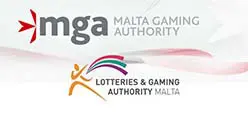 Malta Member of Parliament Silvio Schembri has tabled a new gaming bill which will see significant upgrades to the existing legislation.
Malta Member of Parliament Silvio Schembri has tabled a new gaming bill which will see significant upgrades to the existing legislation.
The government is making sure that the Malta Gaming Authority has the essential latitude through bills in order to regulate the gaming industry and protect the consumers. It will focus on proof-based techniques.
Schembri, the parliamentary secretary for financial services, says the new bill could grow the industry by four percent.
This bill has draft proposals which have an objective to fill the gap between different gaming verticals and channels and this includes new technologies which serve as a platform for future gaming regulation.
The regulatory framework will make the MGA compliance powerful, with this becoming a key element of the online gaming industry right across the world with more countries addressing legislation.
It makes the MGA alert in its process of decision making and also focuses on the efforts of the regulator on the areas which have a greater profile risk. Some other vital areas of focus are consumer protection standards, gaming measures and objective oriented standards to motivate development.
The motion is now put to a period of public consultation done by the MGA with different stakeholders in the industry.
The consultation was started in July 2017 and was received by the industry resulting in feedback from 53 varied parties based abroad and locally.
The information on the new proposals is accessible from the draft Bill.
Some of the important highlights of the new Gaming Act are:
To substitute the present multi-license system with a system where there will be two varied types of licenses – a business to consumer (B2C) license and a Business to Business (B2B) license which covers various kinds of activities in many distribution channels.
To widen the MGA’s compliance powers to help accomplish regulatory objectives with the developments on anti-money laundering and terrorism funding.
The bill also aims to segment different key functions in licensed activities for direct scrutiny and supervisory controls, thus elevating the bar for individuals within a gaming operation.
There is an introduction of new and more processes for criminal and administrative justice and this includes allocation of appeals from decisions of the Authority to the administrative review tribunal and an introduction of a differentiation between criminal offences and administrative offences.
There is an introduction to the concept of administration to protect an operation in distress and to help the winding down of an operation.













